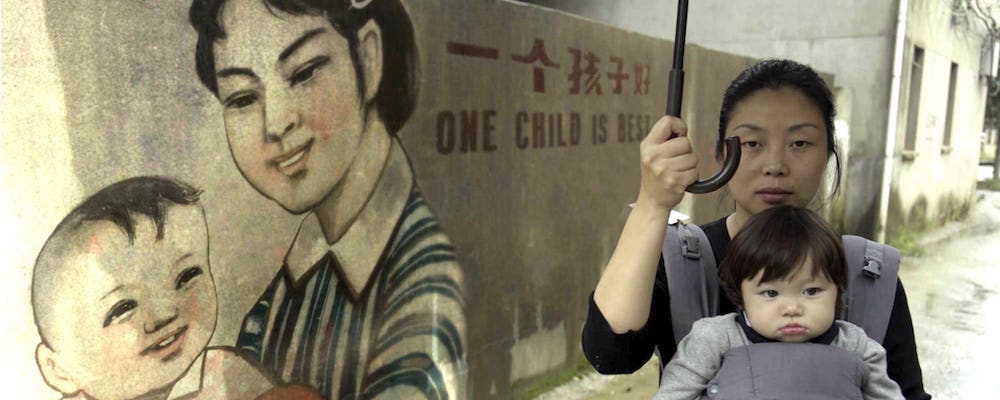‘One Child Nation’ Offers a Horrifying Look at the Consequences of China’s Population Control Policy
Andrew Bundy
From 1979 to 2015, a population control policy restricted women in the People’s Republic of China from having more than one child. The memory of an entire country was poisoned as a result of this propaganda-driven ordinance, known as the One Child policy. Families were ripped apart and truly abhorrent things happened. Threatening banners were hung throughout various provinces to remind parents of their duty; “If one person refuses sterilization the family will suffer,” one such sign read.
Nanfu Wang and Jialing Zhang, co-directors of the deeply profound documentary “One Child Nation,” were both born underneath the policy after which their film is named, with the movie tracing Wang’s family story as part of its central narrative. The filmmaker was a rare case of having grown up in a household with another sibling, an older brother, because she lived outside of the area where the One Child doctrine was strictly enforced. When Wang went to middle school in the city, she was embarrassed to admit she had grown up with a sibling; no doubt fearing shame and judgement from other students and teachers.
By injecting propaganda into every day cultural activities, such as performance art, inherited political philosophies began festering as early as school choir. Through inspiring and educational folk songs, young students were brainwashed to believe that their standard of living doubles if the government is allowed to regulate control over women’s bodies. People were told that the entire country would starve without the policy. Midwives became murderers for the state, effectively. Child trafficking had become a profitable profession and corrupt orphanage scams ran rampant.
“One Child Nation,” doesn’t merely scratch the surface of the problems at hand, the documentary intricately dives into all of the issues, questioning the propaganda machine of the People’s Republic of China with both a close and comprehensive interrogation-like process. The film is at times extremely dark and on occasion disturbing, but it injects a considerable amount of warmth into the proceedings as well. By focusing on a number of diverse specialty subjects and exploring their personal experiences, “One Child Nation” is able to paint a complete picture of the precise consequences of the policy from a multitude of directions.
The filmmakers interview everyone from Wang’s own family, to party members who were given awards based on the ratio of children born, and even a couple in Utah attempting to reconnect adoptees that were stolen from their Chinese birth families. We meet an artist who started a series of themed works after witnessing a fetus, wrapped in a medical waste bag, being discarded beside some mannequins below a bridge, as well as a journalist who was barred from running the true story of what was happening. From the doctors and nurses who try to maintain control of their medical profession, to American adoption agencies that fabricate rescue stories in order to hide where the babies were really coming from. The documentary shines a tragic light on the trickle down impact of the strict government policy.
With much of this information far out of reach until recently, many Chinese citizens still stand by their party’s politics. “Our leaders were prophetic. If not for this policy, our country would have perished,” says loyalist Jiang Shuqin. “We were fighting a population war.” Others experience regret and remorse when reflecting back on such recent history. One caretaker now only accepts patients who are infertile, aiming to at least attempt to correct some of the domestic damage they knowingly caused.
Some of the stories shared in “One Child Nation” are full of dour details, but the film is also delicate and the documentary never feeling overly dramatic. Honor being so important to families, infant girls are often abandoned in public, with the parents hoping to birth a son in her place. At one point in the movie, a person being interviewed describes seeing a child being dropped off at a clinic in a “paper cage.” The filmmakers soon learn that what they meant by that was a “cardboard box.”
Wang and Zhang’s documentary is essential viewing and incredibly emotional filmmaking. The directing pair does a profound job balancing the weight of the subject matter, creating material that is humanistic and insightful in a way that doesn’t feel educationally repetitive. Controlling the lives of others will always have unforeseen consequences. When people have the most basic human right decided for them, how are they to possibly bear the burden of such grave responsibility.
“One Child Nation” opens Aug. 9 in select theaters.

